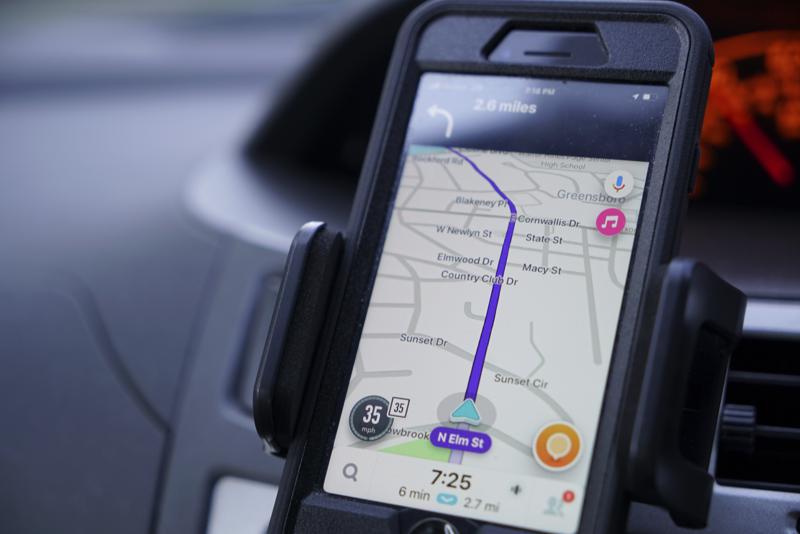House Speaker Mike Johnson exercised his power of the gavel Tuesday in an unusually aggressive effort to squash a proposal for new parents in Congress to able to vote by proxy, rather than in person, as they care for newborns.
His plan failed, 206-222.
In an unprecedented move, the House Republican leadership had engineered a way to quietly kill the bipartisan plan from two new mothers — Republican Rep. Anna Paulina Luna of St. Petersburg and Democratic Rep. Brittany Pettersen of Colorado. Their plan has support from a majority of House colleagues. Some 218 lawmakers backed their effort, signing on to a so-called discharge petition to force their proposal on the House floor for consideration.
But Johnson, like GOP leaders before him, rails against proxy voting, as President Donald Trump pushes people back to work in the aftermath of the COVID-19 pandemic work-from-home trend.
A procedural vote Tuesday tested who had the tally on their side — the speaker or the plan’s sponsors. Nine Republicans joined all Democrats to sink the GOP leaders’ effort.
“If we don’t do the right thing now, it’ll never be done,” said Luna, who gave birth to her son in 2023.
Pettersen, with a diaper over her shoulder and 4-month-old son Sam in her arms, stood on the House floor and pleaded with colleagues to turn back the GOP leadership’s effort to stop their resolution.
“It is unfathomable that in 2025 we have not modernized Congress,” she said. “We’re asking you to continue to stand with us.”
Johnson had drawn the line against proxy voting as unconstitutional.
“Look, I’m a father, I’m pro-family,” the Republican speaker said late last month. But “I believe it violates more than two centuries of tradition and institution. And I think that it opens a Pandora’s box, where ultimately, maybe no one is here.”
It’s the first time in modern House history that the leadership was taking the extraordinary step to try to halt a discharge petition when it’s this far along. Next steps are uncertain.
Luna used the discharge petition process as she and others grew frustrated that House committees and party leaders were not bringing the proxy-voting proposal forward. Instead, she and others gathered the majority signatures needed, 218, to discharge it from limbo, and force it to the floor for action.
At a rules committee hearing early Tuesday, the GOP-led panel tucked a provision into the routine rules process that would have prohibited not just this discharge petition but any others that try to push proxy voting forward.
Rep. Jim McGovern of Massachusetts, the top Democrat on the panel, said a discharge petition has never been halted before at this stage — a remarkable move from Republicans who often campaign as the party aligned with family values.
“Given the chance to actually support families, they turn their backs,” he said. “A majority of the chamber is upending what the majority in this chamber wants.”
Republicans countered that Luna, who led the discharge effort, did not go through the regular process of waiting for their resolution to be brought to the floor through normal procedure. And they criticized the temporary proxy voting policy that Democrats put in place during the pandemic that they said was abused by member absences.
“You have to come to work, you have to be present,” said Rep. Ralph Norman, a South Carolina Republican, during a committee debate.
Rep. Virginia Foxx, a North Carolina Republican and the chair of the Rules Committee, decried what she called the “laptop class” in America that doesn’t have the luxury of working by proxy. “Members of Congress simply need to show up for work,” she said.
About a dozen women have given birth while in Congress over the years, and there are many new fathers as well. One, Rep. Wesley Hunt, a Texas Republican, had dashed back to Washington for votes in 2023 after his wife had just given birth and their son was in an intensive care unit.
Many new and existing parents were among the eight other Republicans who joined Luna to push ahead past the leadership.
Luna’s petition opens the door for the House to vote on a resolution that would allow new parents serving in Congress to designate a proxy — another member of Congress — to vote on their behalf for 12 weeks.
Republicans had barred proxy voting once they took control of the House from Democrats in 2023. The new resolution, which includes specific procedures on how the new parent would deliver voting instructions, would mean a change in their House rules.
The resolution from the mothers allows proxy voting for lawmakers who have given birth or pregnant lawmakers who are unable to travel safely or have a serious medical condition. It also applies to lawmakers whose spouses are pregnant or giving birth.
Under the resolution, qualifying lawmakers may designate a proxy to cast a vote for them for up to 12 weeks.
Luna, who is among the House’s more conservative lawmakers, made headlines for her steadfast support of Trump. But she resigned this week from the archconservative House Freedom Caucus, saying she could no longer be part of the group if members “broker backroom deals” against its values.
___
Republished with permission of The Associated Press.
Post Views: 0

 Entertainment8 years ago
Entertainment8 years ago
 Politics8 years ago
Politics8 years ago
 Entertainment8 years ago
Entertainment8 years ago
 Entertainment8 years ago
Entertainment8 years ago
 Tech8 years ago
Tech8 years ago
 Tech8 years ago
Tech8 years ago
 Tech8 years ago
Tech8 years ago
 Politics8 years ago
Politics8 years ago











